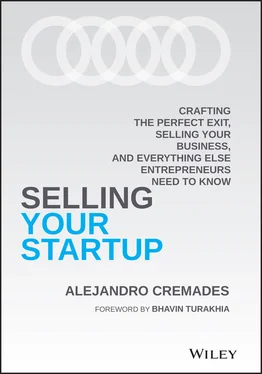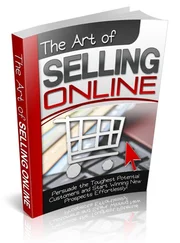Media versus Your Business: What You See in the Press versus Reality
Just as with fundraising, there can be a big difference between the average merger and acquisition and the sensational headlines you see in the media.
After interviewing hundreds of real-world entrepreneurs on the DealMakers podcast—entrepreneurs who have raised amazing money and exited their companies for the grandest outcomes—I've gained and shared the inside scoop on many big deals.
There are certainly startups that have attracted amazing inbound offers in just a year or two since launching. Some have been incredibly fortunate to have found highly competent and efficient acquirers who have run smooth and fast processes. More than a few have sold their companies for billions of dollars.
Others appear to be “overnight successes” after 10 years or more of hard work. Some end up exiting their companies in less-than-ideal circumstances and for much less than expected.
Sometimes board members sabotage the ideal moments to sell for the most dollars. Although exits can happen in only a few weeks, they can often take a year to complete—a long period of extra hustle and stress, which few people talk about.
And although most founders strive for an exit that creates a great future for their startup baby, customers, product, and team, it isn't always as glamorous and profitable as expected. Companies that choose the IPO route often find things go downhill fast in the 12 months after going public. Reverse mergers to take back and revive a company aren't all that uncommon.
If things haven't been structured well for you up to this point, it can lead to huge shortfalls. Did you know that you can sell your company for $1 billion and end up walking away with almost nothing? Due to earnings multiples, seniority, and liquidation preferences, companies appearing to have a lot of equity can leave founders and employees with very little stock at the closing.
When the startup Get Satisfaction sold for $50 million, the founder said he didn't get a penny. The startup Good Technology was valued at $1.1 billion. When the company sold, some employees paid six figures in taxes on their supposed equity, then saw the values of their shares fall from $4.32 to just $0.44.
Even in some of the best scenarios, vesting and resting clauses may mean that you only get half of the announced sale price if you can't stick out the next few years working for your acquirer and hitting the high goals they have set.
The point is, unless you are very careful in structuring equity and legal agreements during the journey, and you understand what they mean in a given exit, those big headlines may not make you feel that good in reality. Sure, the gold star for your résumé might make starting a new venture and raising new money easier, but you should ensure you are getting paid well for all of the sacrifice and work you are putting in.
I often share with entrepreneurs the importance of looking after the founder exit as opposed to just thinking about the business exit. Founders should always keep an eye on the ball. It is all about finding an outcome that justifies all the sweat and tears shed over the course of time.
What is it that potential buyers want?
Unless you understand what acquirers want, you can't build and position your company to attract them and the best offers. The more intimately familiar you are with these factors, the better you can curate this opportunity for them, and the more power you'll have in negotiations.
This isn't just about understanding their motivations—it's also about what they expect of a target company and its leaders throughout the process, from first talks to the closing table and beyond.
It is easy to craft a great pitch and sales effort that promises the world. Any used car salesperson, door-to-door vacuum salesperson, or infomercial can do that, though it won't get you far unless you can back it up with facts. Buyers will investigate. They have the responsibility to their own shareholders to make sure that everything adds up.
Your accounting needs to be clean. Acquirers may well expect you to be missing out on some key tax savings and potential profits. They may expect to find some issues that give them power to renegotiate better pricing and terms in their favor. The cleaner and more organized you are, the less likely you'll have to deal with these problems. Much of this can also apply to your legal, contracts, debts, and intellectual property (IP).
Acquirers are going to invest hundreds of labor hours and make a big investment in time and planning to go through this process. They are going to expect you to be willing to do the same and hustle to get the deal done.
It's like if you are trying to buy a house and you are locked up in the contract, but the seller delays handing over documents to the mortgage company and stalls the deal. You wouldn't be happy either. Be prepared to dedicate the time and resources to an intensive and demanding process.
Any intelligent acquirer and the teams of experts are going to want you to share in the risk they are taking on. They are risking money, time, and their reputation. There can be long-term risks of the deal not working out that no one will be aware of until a merger plays out. Expect them to want to structure the deal to share this risk between your company and theirs.
A Commitment to Making the Most of the Company
Just because you are going to be consumed with trying to make this deal for the next few months—and may be passing the reins onto someone else—that doesn't mean you can start slacking on the core of your business. You are going to have to keep up the same performance during the process to be able to close on the initial terms. That's true of your growth rate, reputation, revenues, and profitability.
Buyers also want to see that you are setting them up to continue succeeding after the sale. This is why founders will often have noncompete clauses and will be asked to stay on to keep things working for several years after the sale. In most cases, they don't want you to dump a company on their books that is about to fall apart.
All people on the other side of the table want to look good. They want to look good to the people to whom they report. Those people may be team leads, executives, the board of directors, investors, shareholders, and even the public. Be sure you are positioning in a way that helps them achieve that.
We'll dig deeper into some of the motivations for strategic and financial acquisitions later in this book, but here is a quick list of some of the most common:
Acquiring data
Acquiring revenues
Expanding market share
Maintaining and accelerating their growth
Securing IP
Acquihires to bring in better talent
Blocking their competition
Adding new verticals and products efficiently
Getting a good financial deal
Why Most Acquisitions Fail
According to CB Insights, 70 percent of startups fail after their first financing round; 97 percent of some categories, such as hardware startups, eventually die or become zombies.
If you've made it this far, you've already beaten many of the odds. Yet, 60 percent or more of all acquisitions fail, too. Some put the number as high as 90 percent, so you are not out of the woods yet.
The following sections examine some of the top reasons that these M&A deals fail during the process or within the next couple of years after a sale.
Читать дальше












